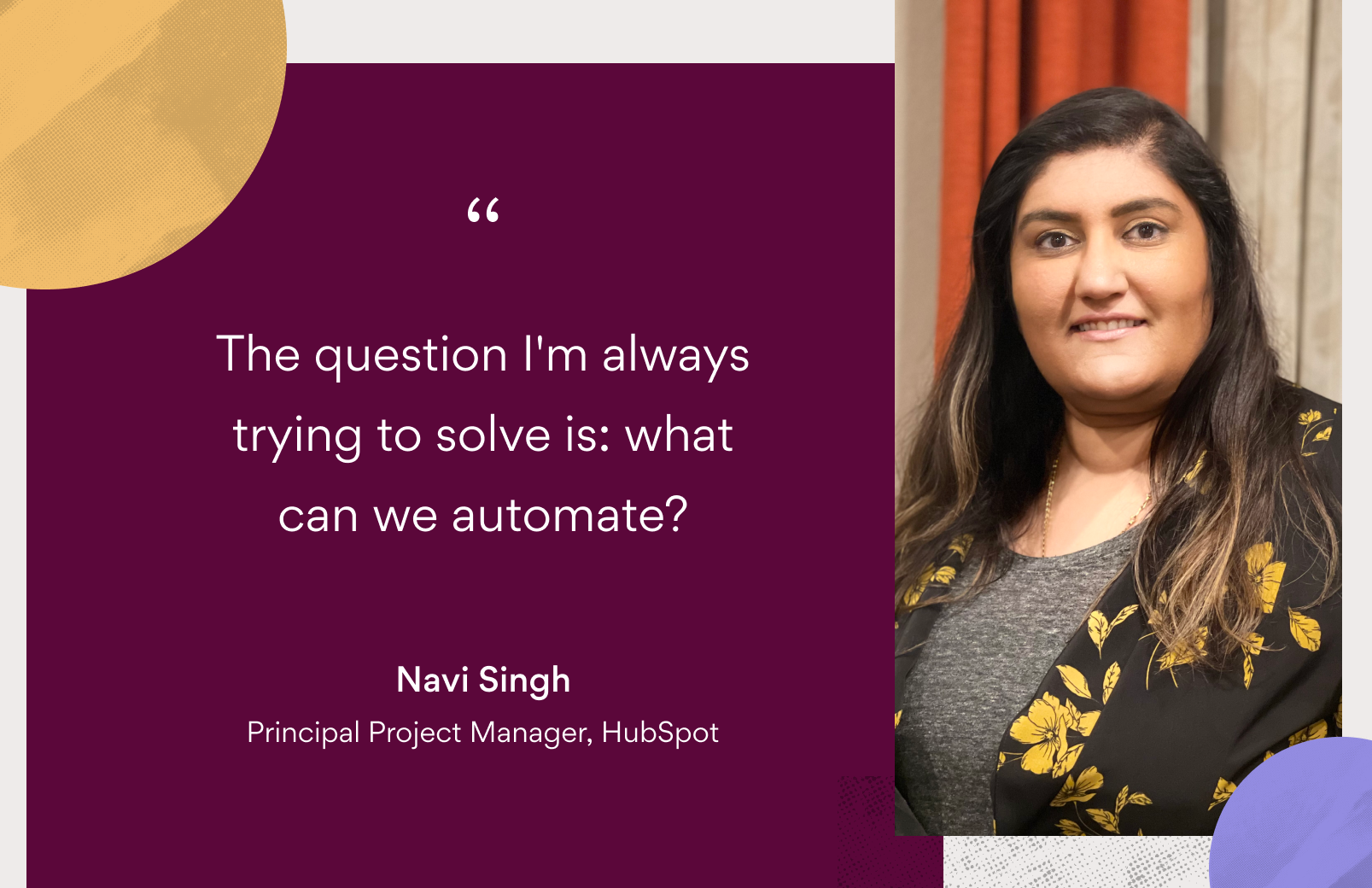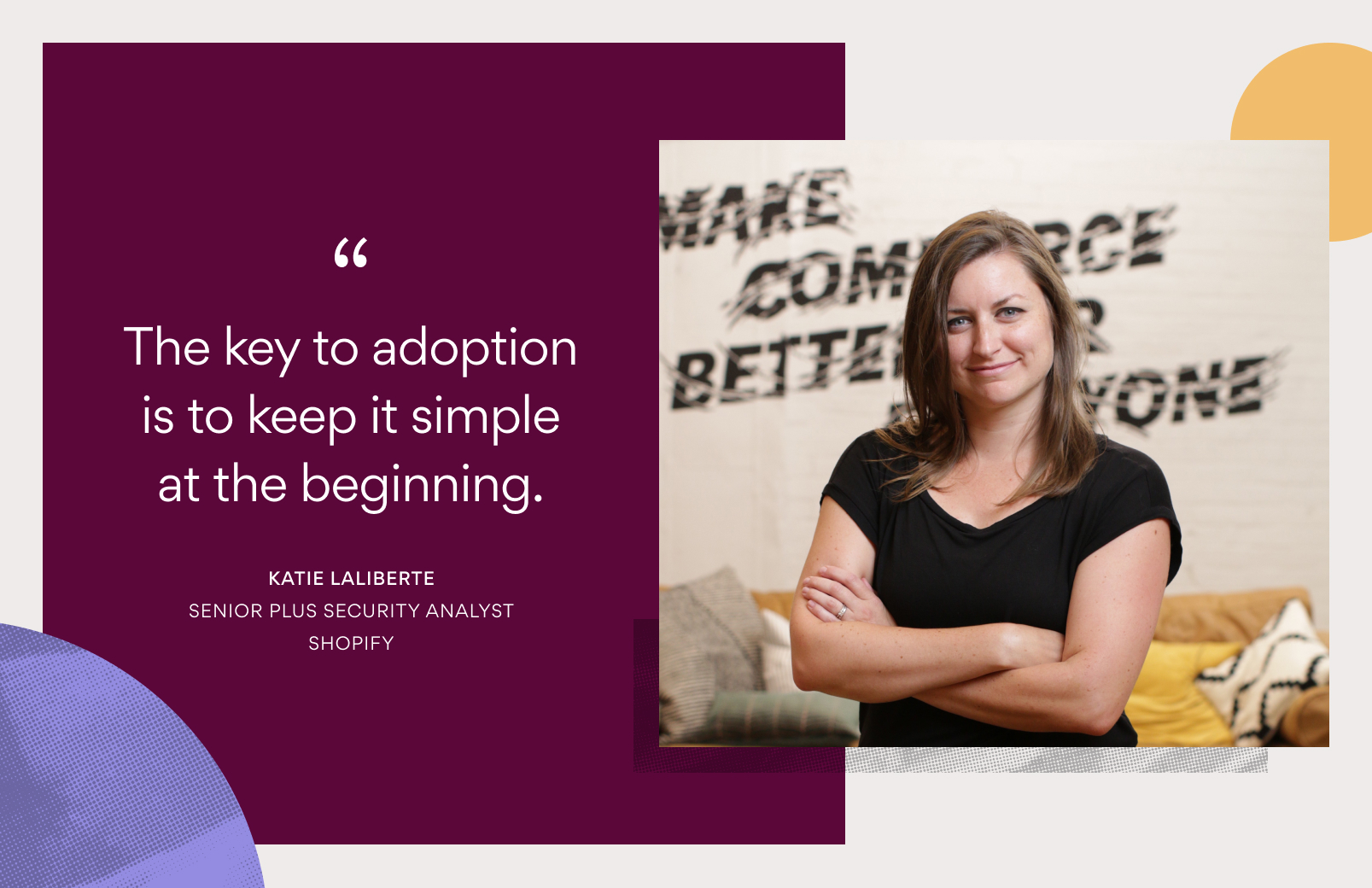4 ways to increase your productivity through better scheduling
We all want to get more done, but the same solution doesn’t work for everyone. Figuring out how to schedule your day to help you maximize your output is the first step toward being more productive. Here are some workday hacks you can try to ensure you’ll breeze through your small and big projects.
1. Consider a no meeting day
What the day looks like
Block off an entire day (or a half day) every week for no meetings. This works particularly well if you can get your entire company or even just your team on board. We have No Meeting Wednesdays at Asana.
Asana Tips
Mark bigger tasks (ones that will take more than 30 mins to complete) with a due date of your upcoming no meeting day. For us, this means having a lot of tasks with Wednesday due dates. Unsurprisingly, we complete a lot of tasks on that day.
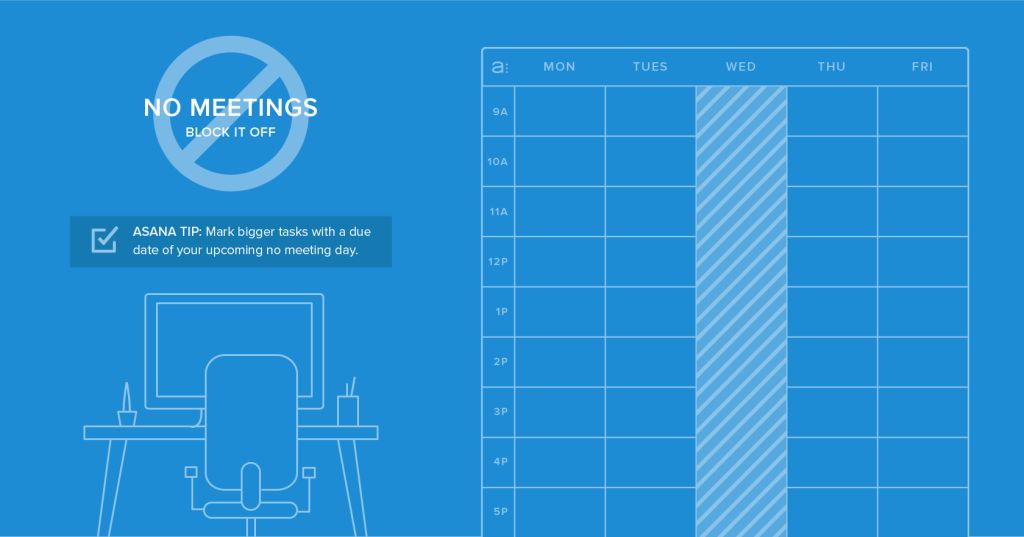
Why it works
Having a full day free from meetings allows both managers and non-managers to get into their flow zone and tackle the big projects that often get interrupted other days of the week. Once you implement a no meeting day, you’ll find that it will become your most productive day of the week, and will reduce your stress level on other days when you can’t find a block of time to focus on your work.
2. Block off the right time for big projects
What the day looks like
Spend a few days taking pulse of your current schedule (or lack thereof): when do you have the most energy? When are you least productive?
Then, plan to work on smaller tasks and those that require less brainpower and creativity at times when you tend to be less inspired. Block off larger chunks of time on your calendar when you’re most ‘on’ for your bigger tasks.
Asana Tips
Use tags or create Sections in your My Tasks list to indicate if a task is small or big. This way, when you have a free block of time, you’ll know to tackle the big tasks, and if you only have a few minutes, you’ll plow through your smaller tasks.
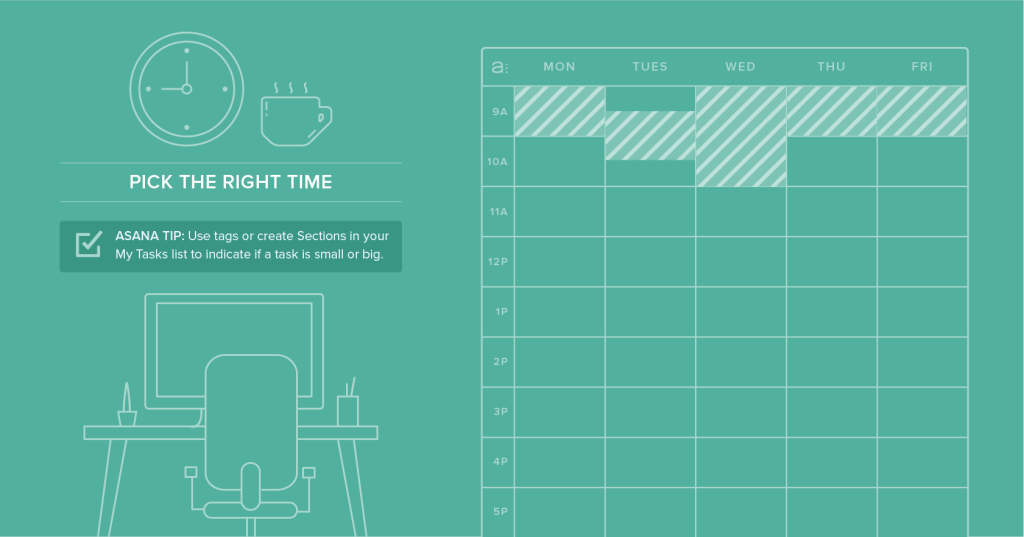
Why it works
A lot of procrastination is a result of poor scheduling: trying to tackle energy-consuming big projects at times when you’re most in need of a break, or not quite ready to think big. Being aware of what times are good for you to get work done, and planning around it, can make a big difference.
The most effective workers are ones who attempt tasks in short bursts of concentration, rather than long bouts of meandering, according to a study published in Psychology Review." Huffington Post,
3. Try the Pomodoro Technique
What the day looks like
The Pomodoro Technique advocates breaking big projects or tasks into smaller, more achievable tasks distributed throughout the course of your day and — notably — separated by frequent breaks. Each task should take no longer than 25 minutes and breaks should be approximately 5 – 30 minutes (depending on how long you need to recharge before the next task).
The technique’s name comes from a tomato kitchen timer, used to time 25-minute increments. If you want a more modern solution, there are many timers available online.
Asana Tips
Look at the Today section of My Tasks and break up bigger tasks into subtasks. Assign due times throughout the day for each.
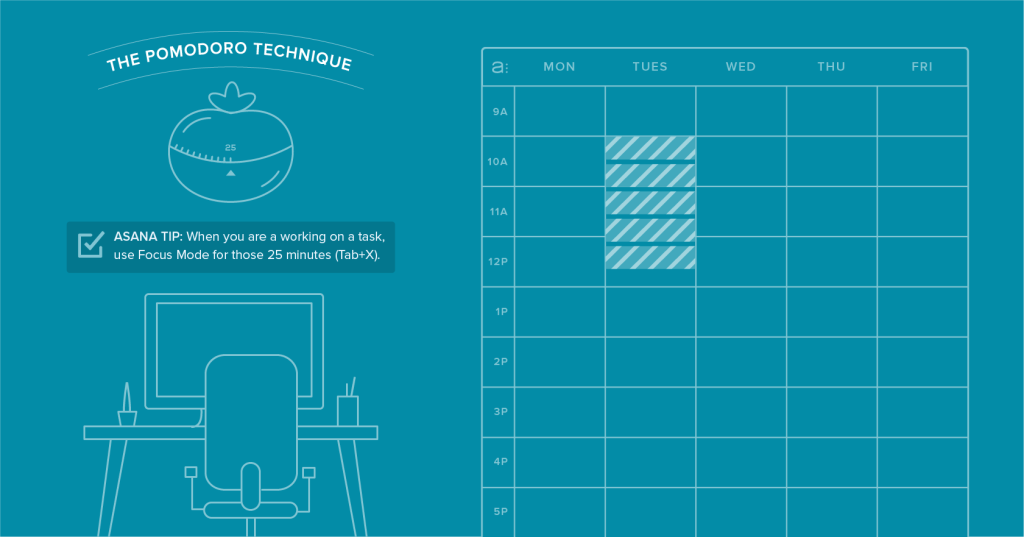
Why it works
The Pomodoro Technique is a time management philosophy that optimizes for creative recharging, so you’ll have less mental fatigue and can move faster through projects.
4. Block off time to plan your day
What the day looks like
Schedule 30 minutes to an hour on your calendar at the beginning or end of each day and use this time to organize your day and respond to teammates in your Inbox (and email).
Asana Tips
Clear out your New Tasks during this time. Use keyboard shortcuts (Tab+Y, Tab+U, Tab+L) to move tasks to Today, Upcoming, and Later in My Tasks to prioritize your work and allow yourself to focus on just the tasks at hand (vs. getting overwhelmed by the ‘big picture’).
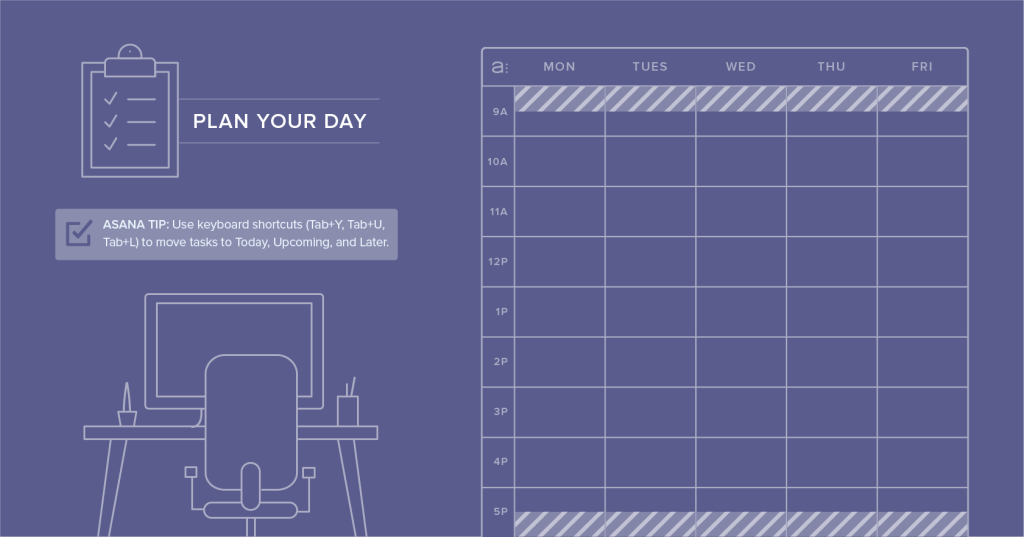
Why it works
Reactive days during which you’re constantly responding to messages, getting distracted by the latest new task, or spending time figuring out what to do next, wastes a lot of time and drains your energy. Getting through housecleaning before you even start your day will save time and conserve your energy for more mindful work later.
For further reading, check out these articles:
Do you have any recommendations for increasing personal productivity? Techniques, methodologies, or habits you’ve developed? Let us know in the comments.
